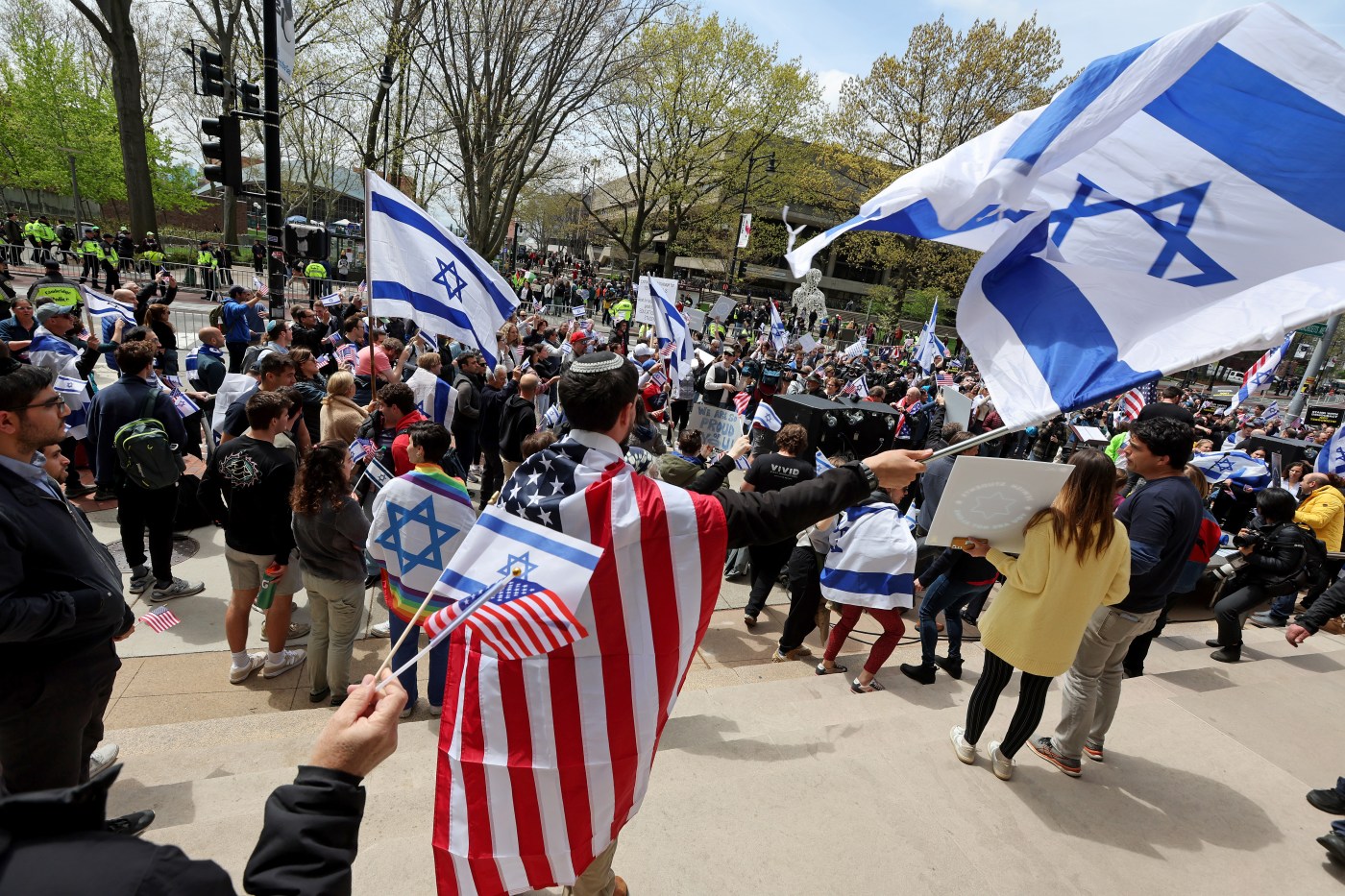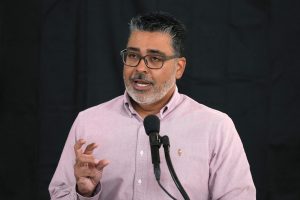
Massachusetts college students call on Congress to intervene, address ‘tsunami of antisemitism’
Jewish students from seven colleges and universities across Massachusetts are urging Congressional intervention to address the “tsunami of antisemitism” threatening their safety on campus.
The Restore Our Campuses Coalition, a group of students from more than 50 universities, sent a letter to Speaker Mike Johnson and Minority Leader Hakeem Jeffries on Friday, urging Congress to step up as leaders at their schools have fallen short to combat the harassment they’re enduring from pro-Palestinian protesters.
“This is a moment that demands leadership by those who are responsible for our campuses,” the letter states. “Instead, unbelievably many of our university leaders have taken no meaningful action to reassert control over our campuses.
“It is no exaggeration to say that many school administrators have appeased the antisemites, and surrendered our campuses to terror-supporting hate mobs,” it continues. “This is an absolute disgrace and a complete abdication of all sense of principle, morality and professional responsibility.”
Students from Harvard, Babson, Williams, MIT, Northeastern, UMass Amherst and Boston University all signed onto the letter.
They’re recommending Congress enforce Title VI violations – a message echoed by U.S. Rep. Jake Auchincloss – and withhold federal funding, call for the termination of faculty and expulsion of students who are “in breach of university codes of conduct,” and work with the Biden administration to “initiate and enforce deportation of non-U.S. students who engage in antisemitic activity.”
Talia Khan, a graduate student who signed the letter for MIT, participated in a rally at her school Friday afternoon supporting Jewish and Israeli students, across the street from Kresge Lawn where a pro-Palestinian encampment popped up on April 21.
“These encampments and all of our universities have become hotbeds and terrorist breeding grounds. We should all be worried about the future of western values and democracy,” Khan said. “We need to come together with a renewed commitment to not only addressing these issues but ensuring none of the students on any of the campuses have to endure these challenges alone.”
The rally, organized by the New England chapter of the Israeli American Council, sparked controversy as MIT President Sally Kornbluth highlighted in a letter Friday morning that the school made “every appropriate preparation for these rallies, with strong support from local police.”
“As I explained by video last Saturday, one of our concerns about the current encampment has been its potential to turn our campus into a magnet for protestors from outside MIT,” Kornbluth wrote. “This is not theoretical: Earlier this week, a group of more than 150 people from outside MIT gathered on Massachusetts Avenue in support of the encampment.”
“I ask that members of the community join us in doing everything possible to keep the peace,” she added.
The rally, which drew hundreds of Israeli and Jewish community members and supporters and shut down a portion of Massachusetts Avenue, went peacefully – resembling a gathering last Sunday at Temple Israel of Boston.
MIT Scientists Against Genocide Encampment, a student group demanding the school end all research contracts sponsored by the Ministry of Defense of Israel, took exception to Kornbluth’s letter.
“Your email is an attempt to shift blame prematurely onto students who advocate for justice, rather than addressing the root cause of the issue – that MIT’s research programs breed violence and now attract supporters of that violence,” the group wrote to Kornbluth. “Your call for the community to join in maintaining ‘peace’ is disingenuous and dangerously passive; it fails to acknowledge the systemic violence that underpins this entire situation; the Genocide in Gaza. There is no peace if there is no justice for Palestinians.”
A wave of demonstrations has spread across U.S. campuses over the last two weeks, led by students who have pitched tents or occupied buildings in protest of the Israel-Hamas war.
It started April 18 when police moved to break up an encampment at Columbia University in New York City. Since then, it has spread to dozens of other campuses from Harvard to UCLA.
More than 100 arrests were made as police broke down encampments at Emerson and Northeastern.
Students are calling on colleges to stop doing business with Israel or companies they say support the war in Gaza. Agreements at schools including Brown, Northwestern and Rutgers stand out amidst the chaotic scenes and 2,400-plus arrests on 46 campuses across the nation
The Israel-Hamas war was sparked by Hamas’ Oct. 7 raid into southern Israel in which the terrorist group killed around 1,200 people, mostly civilians, and abducted around 250 hostages. Israel says the militants are still holding around 100 hostages and the remains of more than 30 others.
The war has killed more than 34,000 Palestinians, around two-thirds of them children and women.
Meron Ruben, Consul General of Israel to New England, called the ongoing unrest a “pivotal moment” for the younger generation.
“I am adding my voice,” he said, “to call on the administrations of universities around New England and the US to ensure the safety of Israeli and Jewish students so that they can be on campus without fear of being threatened or assaulted. We can’t be silent and must stand up for our community.”
The Associated Press contributed to this report
People gather at a pro-Palestinian encampment at M.I.T.. (Matt Stone/Boston Herald)
Israeli supporters rally at M.I.T.. (Matt Stone/Boston Herald)


